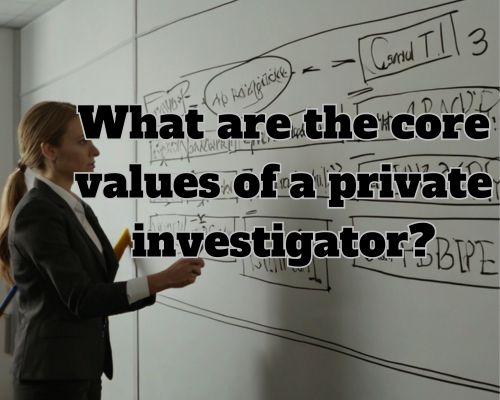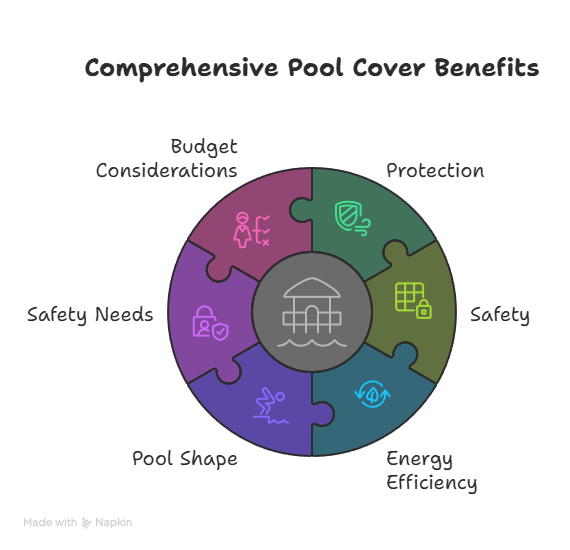When considering the profession of a private investigator, it is essential to understand the core values that guide their practice.
Integrity stands as the cornerstone of a private investigator’s role, ensuring that every action taken adheres to the highest ethical standards.
Sherlock Holmes of Ali Private Investigator Tampa highlights “In a field where the line between legal and illegal can sometimes blur, maintaining ethical principles is crucial for sustaining trust and credibility with clients and the broader public.”

Ethics in private investigation are not merely guidelines but a comprehensive framework that shapes every aspect of the profession.
You must prioritize transparency, accountability, and respect for legal boundaries while navigating the complexities of your cases.
These values not only safeguard your practice but also contribute to the broader justice system by ensuring that information is gathered and handled responsibly.
Moreover, the role of a private investigator demands a commitment to professionalism and client-centricity.
By focusing on the needs and concerns of your clients, you provide them with the assurance that their matters are handled with care and dedication.
Upholding these core values fosters a sense of trust and satisfaction, which is fundamental to the success and integrity of the investigative profession.
Foundation of Professional Conduct
Building the foundation for professional conduct requires private investigators to align their practices with both legal and ethical standards.
Legal and Ethical Principles
Private investigators must ensure compliance with legal requirements and regulations within their jurisdiction.
This includes obtaining relevant licenses and working within established legal boundaries.
Investigators often liaise with law enforcement to ensure their practices do not interfere with ongoing investigations or legal procedures.
Adhering to ethical principles is non-negotiable.
These principles guide the ethical conduct of investigations, ensuring actions are responsible, fair, and lawful.
Upholding privacy laws and avoiding activities like harassment or intimidation is crucial to maintaining ethical practices.
Core Values and Integrity
Integrity is the bedrock of professional conduct for private investigators.
Professional integrity encompasses trust, honesty, and a steadfast commitment to doing what is right.
This includes following a code of ethics that promotes responsibility, professionalism, and excellence in their work.
Investigators must demonstrate commitment to ethical conduct by protecting sensitive information and maintaining confidentiality.
Trust between clients and investigators is paramount, and breaching this trust can damage reputations and careers.
Ethical practices foster a reputation for reliability and respectability in the field of private investigation.
Operational Expertise and Skills
Success in private investigation hinges on a blend of investigative techniques, surveillance skills, and ongoing professional development. This section covers these key elements.
Investigative Techniques and Surveillance
Effective investigative techniques and surveillance are essential for any private investigator just like what Ali Private Investigator Tampa does.
You need to perform tasks like conducting interviews, background checks, and taking photographs.
Combining these methods helps gather comprehensive information and evidence.
Attention to detail is critical when observing and documenting activities.
You must be patient and possess the ability to notice inconsistencies or subtle clues that others might miss.
Patience and due diligence ensure that nothing important slips through the cracks.
Employ technology to bolster your surveillance efforts.
Advanced tools, such as GPS tracking, specialized software, and high-quality cameras, can provide you with precise and reliable data.
By integrating these with traditional methods, you enhance your ability to collect and analyze information.
Professional Development and Training
Maintaining a high level of expertise requires continuous professional development and training.
Educate yourself in areas like public speaking, report writing, and specialized investigation techniques.
Attending courses and workshops offered by professional organizations can be invaluable.
Certifications and credentials add credibility and increase your competitiveness.
A high school diploma might be the minimum requirement, but advanced education and certifications elevate your profile.
For instance, courses in criminal justice or related fields, as well as certifications from recognized bodies, can be beneficial.
You should also gain experience through various assignments in different settings.
Work with insurance companies, government agencies, or private employers to broaden your skill set.
Each job offers unique challenges, and diverse experience enhances your versatility and effectiveness as an investigator.
Joining professional organizations keeps you updated on industry standards and practices.
Networking with peers and participating in forums can provide insights into the latest trends and techniques in the field.


